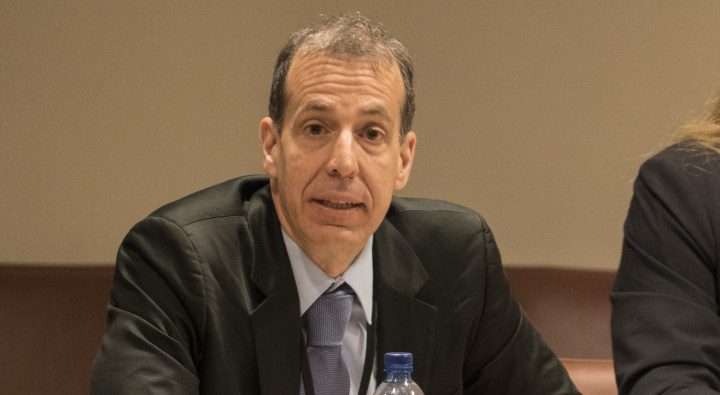The first session of negotiations “on new legally binding instrument to prohibit nuclear weapons, leading toward their total elimination” ended on Friday, March 31st at the UN headquarters in New York on a successful note, and a draft treaty is due to be presented in the second half of May.
Over 130 countries participated in this first round of discussions with international organizations, experts and civil society representatives in a spirit of openness and sincere commitment to the goals of the discussions. “This is an historic process,” said Reiner Braun, co-president of the International Peace Bureau, a peace movement that was awarded the Nobel Peace Prize in 1910. “It is the first time in UN negotiations especially on nuclear weapons, that the super-powers stand outside the room. We have felt an impressive spirit of courage, empowerment and emergency to prohibit the worst weapons ever conceived.”
The works went well and fast, as described by ICRC representative, Mr Lou Maresca, who emphasized that at the end of the week “all ICRC expectations were met and exceed” with the perspective of “clear and robust” prohibitions after the second round that will take place from June 15th to July 7th.
Before the next round, all countries including nuclear weapons states, will meet in Vienna (May 2-12) for the 1st Preparatory committee of the Non Proliferation Treaty. The Treaty is facing major challenges especially from the proponents of nuclear weapons. The lack of implementation of the commitments and the planned modernization of all the world’s arsenals stands in contradiction with nuclear weapons states obligations under Article VI “to pursue negotiations in good faith on effective measures relating to cessation of the nuclear arms race at an early date and to nuclear disarmament” and worrying declarations of the Trump administration that this commitment to nuclear disarmament could be dismissed in the next US Nuclear Posture Review.
The vast majority of governments and peoples are frustrated by the lack of progress in nuclear disarmament in regards to the threats that these weapons are posing to the very survival of humankind and our environment. There was a broad agreement this week in New York that the Ban Treaty should clearly focus on the humanitarian costs of nuclear weapons and the unacceptability of weapons designed to indiscriminately kill civilians.
Once again in a treaty process to prohibit an indiscriminate weapon, civil society has and is playing a key role that many delegations have welcomed. “If we want to achieve in July a simple, efficient and goal-oriented treaty and advance our final goal of total elimination of nuclear weapons, the the development of a broad grassroots mobilisation will be essential,” said Braun, as the IPB is already calling for participation in the Women’s March to ban the bomb on June 17th in New York.
The IPB also recalls the outrageous cost of the production nuclear weapons in the nine possessor countries, which is considered to exceed 110 billion US$ per year, and the cost of the consequences of any use of one of the 16,000 existing nuclear weapons can’t be valued when targeting a major city. The Global Day Against Military Expenditure, a major IPB campaign GDAMS, will see many actions around the world starting on April 18th, with a special focus this year on the cost of nuclear weapons programs.










